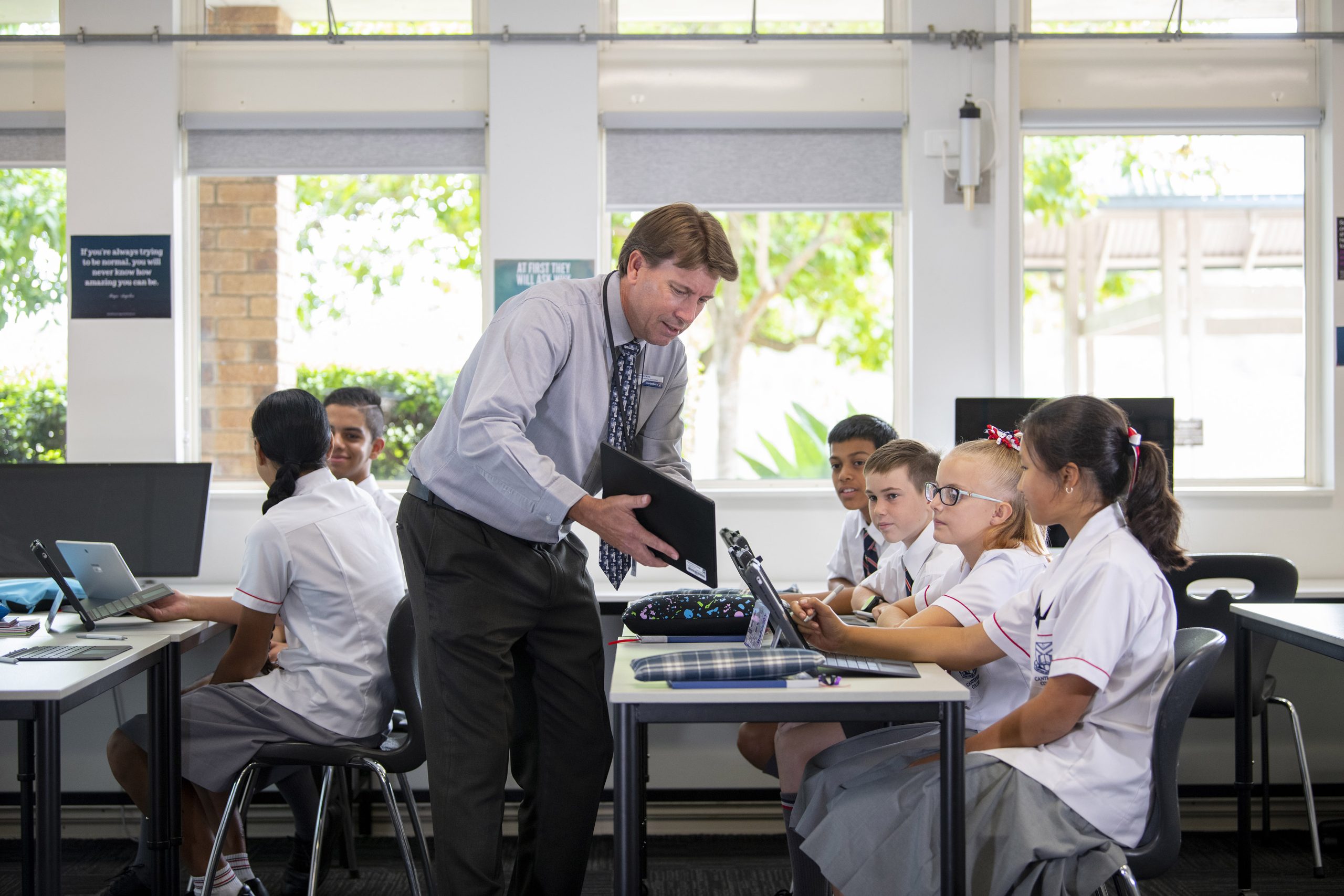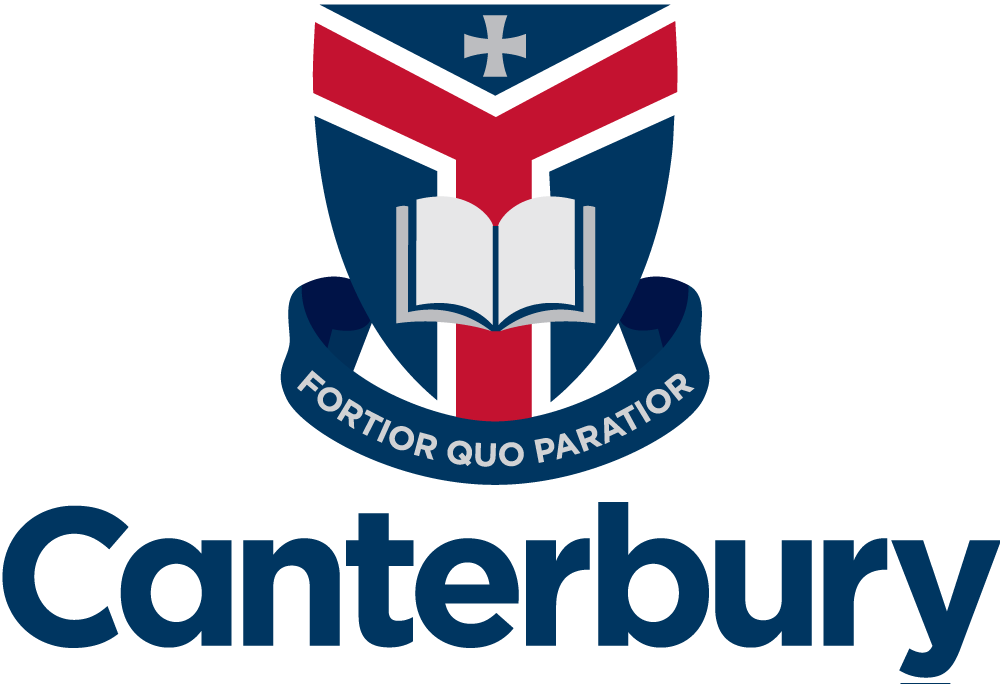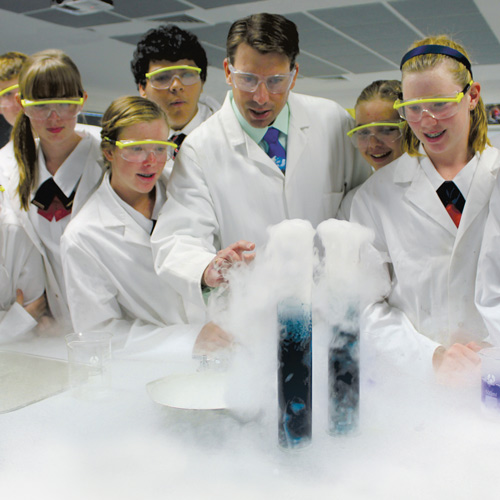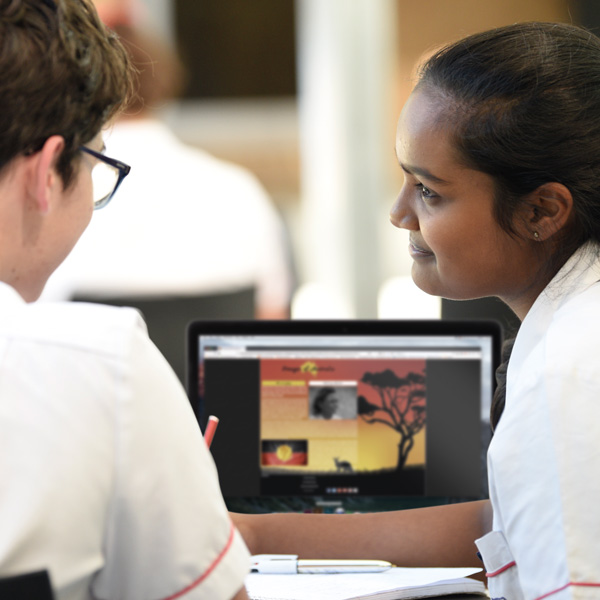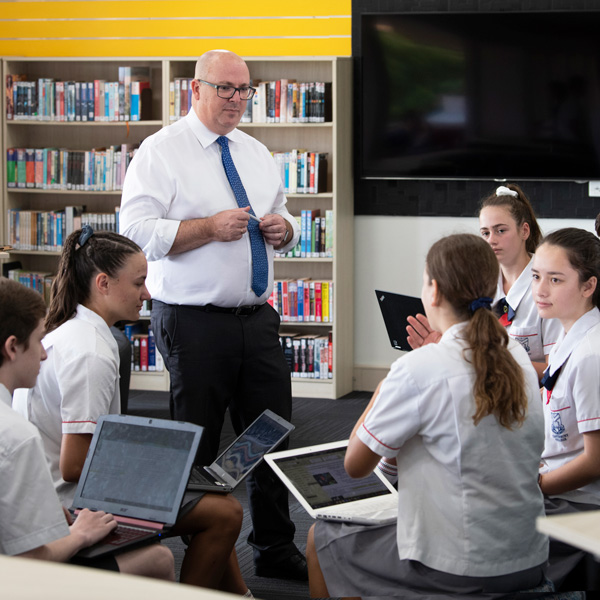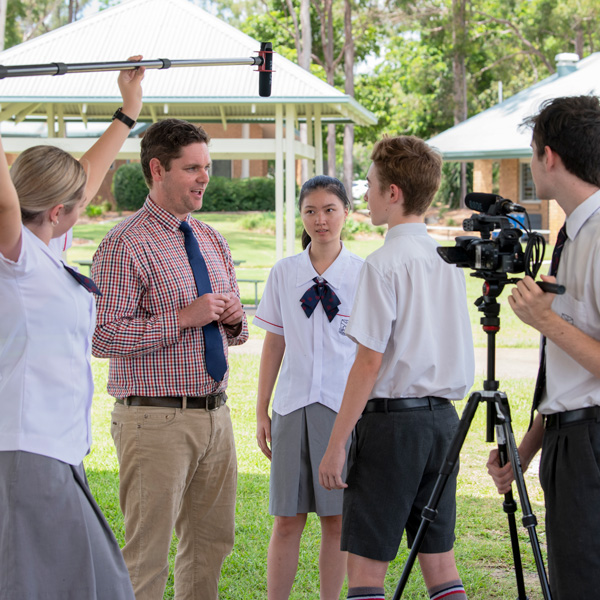Science
Canterbury’s Science curriculum features a strong inquiry base and is supported by rigorous academic content.
YEAR 7 | YEAR 8 | YEAR 9 | YEAR 10 | YEARS 11 AND 12 |
Science | Science Experimental Science | Science Chemistry and Physics (Extension) | Science Biology Science in Practice | Biology |
Science at Canterbury offers students the opportunity to explore familiar and unfamiliar contexts, while developing the skills and knowledge they need to understand and appreciate the wonderful but complex world we live in.
Science as a subject is wide and far-reaching.
In Years 7-10, students explore Biological Science, Chemical Science, Earth and Space Science, and Physical Science.
They will cover topics such as:
- The diversity of life on Earth (and how to organise it).
- How tectonic activity has (and is still) forming the world around us.
- How both wave and particle models allow energy transfer (and why that’s important).
- How chemical reactions happen (and why 20 minutes at 180oC is not the same as 10 minutes at 360oC in an oven).
As American writer, futurist and businessman Mr Alvin Toffler said: “The illiterate of the 21st Century will not be those who cannot read and write, but those who cannot learn, unlearn and relearn.”
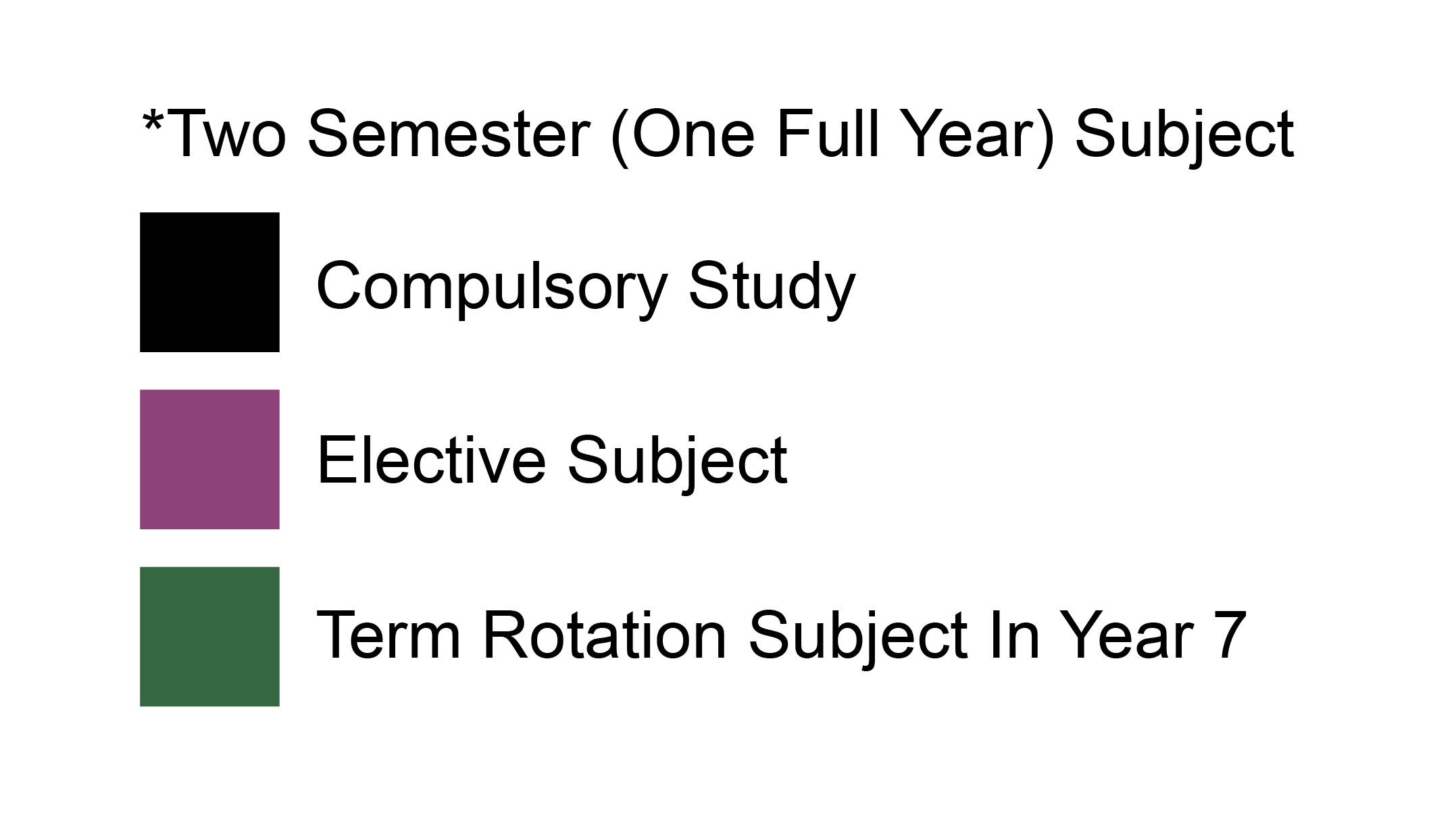
So our Science faculty believes nurturing the curiosity and ‘love of learning’ in our students will allow them to grow into the next generation of critical thinkers and problem solvers.
Students are encouraged to think for themselves rather than simply remembering information.
They are taught the skills to evaluate the information they obtain, rather than simply accepting it at face value.
Objective data analysis is encouraged, and students are instructed in the techniques to do so.
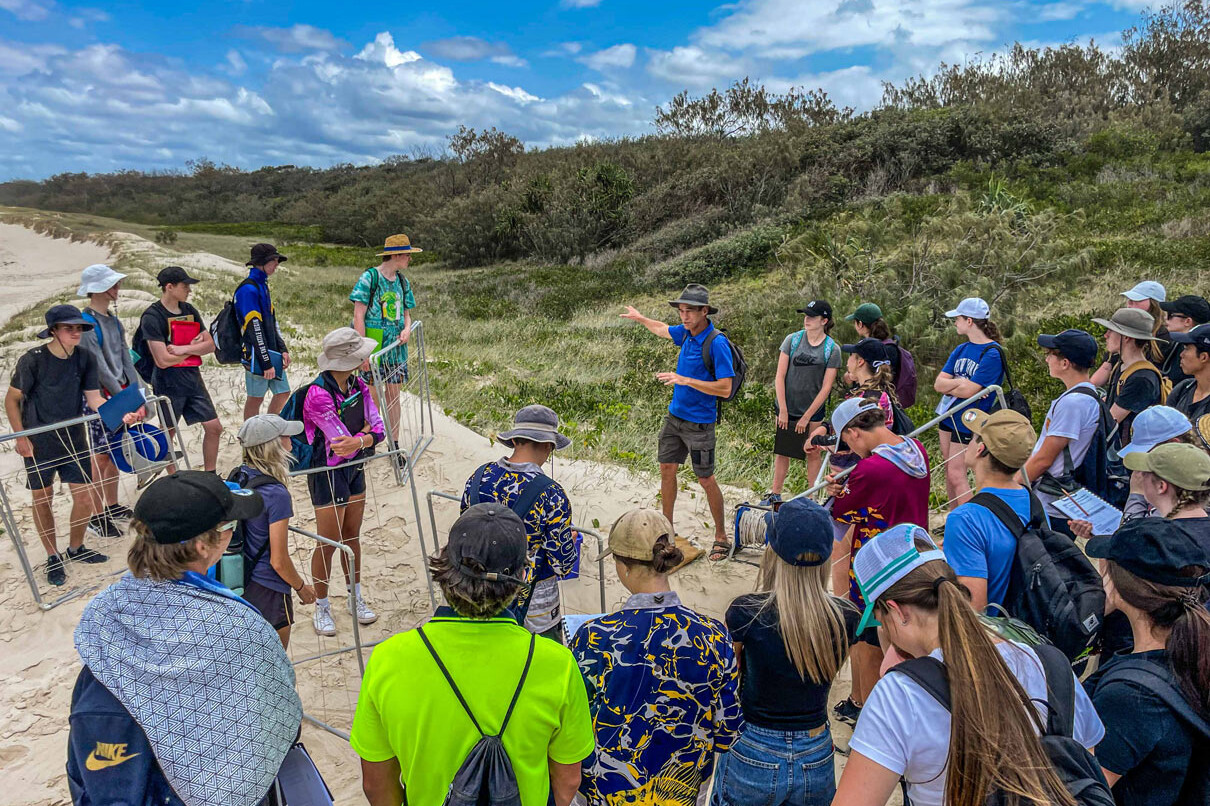
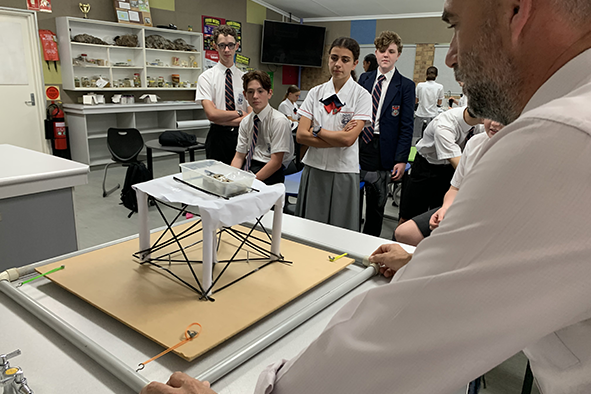
Students are required to form opinions on scientific issues and use evidence and justified arguments to support their viewpoints and decisions.
The modern Canterbury Science classroom is a place of two-way communication and collaboration.
Using technology is commonplace and valued, but so too are the classic skills of writing with pen and reading from paper, rather than always using a screen.
Lessons vary in structure – with some teacher led, others collaborative, and others are student inquiry based.
They take safe intellectual risks, and practice resilience when those ideas don’t work, but remain supported throughout.
Our passionate and dedicated Science faculty staff help students develop their own framework of understanding, by walking with students through their learning journey.
They provide students and their parents or carers with feedback throughout each unit of learning, to allow students to practice their metacognitive skills and focus on their own individual needs.
Tutorials outside regular class time are offered to students wanting extra learning time or needing additional teacher support.
Canterbury offers an engaging suite of Science subjects – including Core Science from Years 7-10, along with electives starting in Year 8.
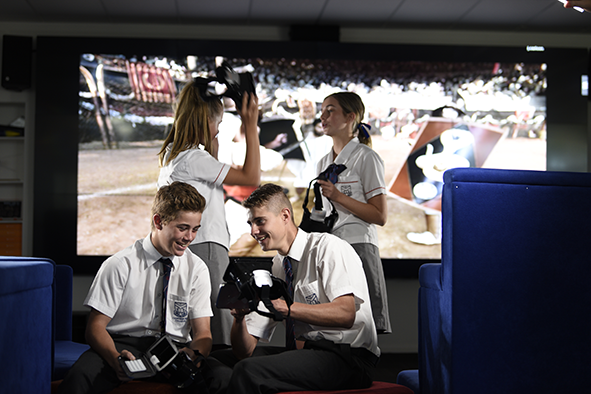
- Experimental Science offers students a course built around practical work, where students are scaffolded to design, test and redesign their methods, while considering their own goals and scientific methods.
- Chemistry and Physics (Extension) offers science-loving students a chance to widen their scope of understanding, by looking at and experimenting with topics such as rocketry, through a more advanced ‘learning lens’.
- Biology, Chemistry and Physics electives start in Year 10, with foundational content for the Years 11-12 General courses, along with ACARA’s Australian Curriculum.
- Science In Practice is a multi-strand subject which focuses on real-world applications for learning Science, so the more general nature of this subject allows greater flexibility, for the course to be adjusted to students’ interests.
- The Year 10 course dovetails into the Applied Years 11-12 course, with topics studied previously – including hydroponics (horticulture), the fermentation of kombucha (micro-organisms), and the always popular CSI: Canterbury (Crime Scene Investigation forensics).
In Years 11-12, QCAA General Biology, Chemistry and Physics are taught by experienced and specialist teachers in each subject.
Canterbury College enjoys a long and proud academic history of excellent Senior School results in Science subjects, with large numbers of graduates going onto tertiary education in advanced Science-based fields.
32% of our graduates are responding to the growing call for community care post-pandemic, and with a steadily aging population, via further studies in health.
13% of our graduates who excelled in the school sciences like biology, chemistry, physics and mathematics, are advancing their academic knowledge with further studies in science, mathematics and engineering.
